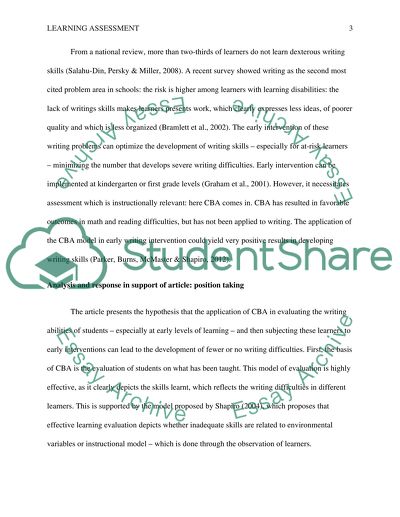Articles on Learning Assessment Essay Example | Topics and Well Written Essays - 750 words. Retrieved from https://studentshare.org/education/1458993-1-2-articles-on-assessment-from-scholarly-peer-viewed-journals-published-within-the-last-3-years
Articles on Learning Assessment Essay Example | Topics and Well Written Essays - 750 Words. https://studentshare.org/education/1458993-1-2-articles-on-assessment-from-scholarly-peer-viewed-journals-published-within-the-last-3-years.


